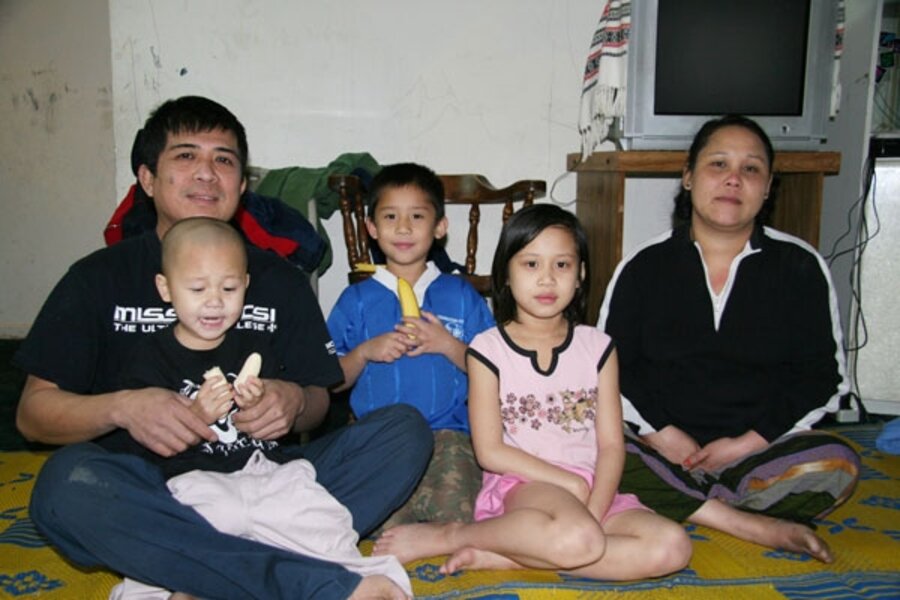Refugee job hopes wax and wane at farmers market
Loading...
With the world economy in free-fall, refugee families like those in metro Atlanta's low-income suburbs are particularly vulnerable. It's a miserable time to be newly arrived in the country, trying to learn the language and find a job.
Thayoomoo Ywin's family lives in a sparsely furnished apartment in the same complex as Bill Clinton Hadam. The second-grader's prize possession is a pair of holey, once-white, hand-me-down tights that a school friend gave her. Her family is struggling. But they've been in the country four years, and are learning English. Her dad has an $11.20-per-hour job at a tire plant. They're doing better than most.So they've taken it upon themselves to help Burmese refugee families more recently arrived in Indian Creek Apartment Homes. One cold morning last month, Thayoomoo's mom Nyo Nyo, and three friends who've been in the country six months without finding work, gathered at the DeKalb Farmers Market, traditionally one of the biggest employers of newly arrived refugees and immigrants in their county.
Every Tuesday morning, a line forms outside the building. This frosty day, they joined a crowd of jobseekers that grew to nearly 40, most of them African, many of them fellow refugees. Some, veterans of these mornings, said they were back for second and third attempts.
Nyo Nyo and her friends had dressed in their best American clothes. Each wore his or her only closed-toe pair of shoes. A young neighbor couple was particularly ill-prepared for the weather. The husband, in a light, faux-leather jacket, slapped his arms against the cold. He could read and write Burmese, and had waited tables, farmed and done a variety of other jobs back home. His slender wife pulled her hands inside her shirt sleeves to keep warm.
"Any job," they chorused to anyone who asked them a question.
Eventually, employees opened the market's doors, directed the job-seekers to take a number from a dispenser at the far wall, sat them all down, and made them wait. Staffers stood in a glass-walled office, laughing and joking as outside, as the job-seekers looked on. 9 a.m., the hour interviews were supposed to begin, came and went.
The applicants sat patiently. On the other side of the room, market employees were taking a basic English class offered by the organization. "I like coffee with cream! Say " the instructor demanded, without preamble. With her impatience and overhead projector, the native-English speaker seemed to have little idea how to reach her students, who hailed from across Asia and Africa. It wasn't clear anyone was understanding her. Even so, many of the job-seeking refugees gave the class their full attention.
The young Burmese husband, meantime, had managed - with his fewer than 20 words of English - to strike up a conversation with a man sitting next to him, possibly from Pakistan. The man had been in the country four months, he said, and his experience had been: "Come and go. Come and go. No job."
Finally, at 9:24, a woman emerged from the Farmers Market office, and announced that there were no job openings. Applicants who wished could remain for an interview anyway, and the market would keep their information on file.
One by one, Nyo Nyo and her friends steeled their nerves, walked up to the door and took their turns. None of them stayed more than two minutes. But they came back smiling, having communicated, at least, their names, and their willingness to work "any job."





